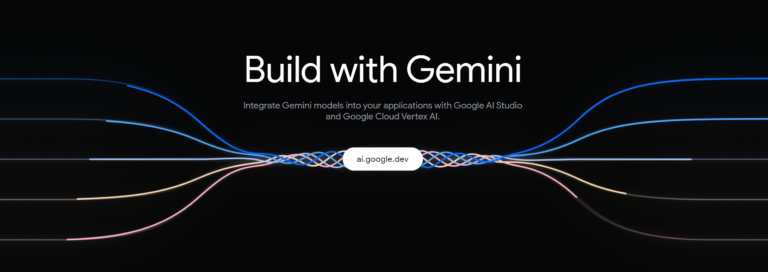AI Fears Uncovered: A Global Analysis
Last Updated on: 4th June 2024, 12:45 pm
Artificial intelligence, or AI, seems to be everywhere in the news these days. From self-driving cars to virtual assistants and breakthroughs in healthcare, AI is transforming our world in ways we could have only imagined a few years ago. As fascinating as these advancements are, it’s natural for people to have concerns and questions about the impact of AI on society, jobs, and the future.
In our report, we’ve conducted a comprehensive analysis based on keyword research from Google Keyword Planner, exploring the fears and concerns people have about AI across different countries. Our findings provide an intriguing snapshot of how people around the world view the potential risks and challenges associated with AI. While our study does highlight some common fears, we want to emphasize that it’s not our intention to scare anyone or paint a dystopian picture.
On the contrary, our report offers valuable insights to help foster a balanced understanding of AI and its implications. By exploring both the positive and negative aspects of AI, we hope to contribute to an open and informed conversation about this transformative technology. We believe that by addressing the concerns of people and highlighting the positive aspects of AI, we can work together to shape a future where AI is a force for good, enhancing our lives and driving innovation in ways that benefit everyone. So, let’s dive in and discover what our keyword research analysis has uncovered about global fears related to AI.
Understanding Our Methodology: A Clear and Comprehensive Approach
To provide a robust and reliable analysis of the fears surrounding AI, we employed a well-defined methodology using Google Keyword Planner. Our approach is designed to be easily understood, allowing our audience to grasp the key concepts and appreciate the significance of our findings.
Keyword Collection: We began by collecting AI-related queries from Google Keyword Planner over the past 12 months, focusing on keywords that indicate fear or concern. These include phrases starting with “will AI,” “is AI,” “why AI,” “how AI,” “can AI,” “AI risk,” and “impact of AI.” By identifying these specific keywords, we aimed to capture the fear intent of the audience.
Country Analysis: We analyzed the collected keywords for each country to gain insights into their respective concerns regarding AI. On average, we examined over 1,000 keywords per country.
Fear Scale Development: To rank the countries based on their fear of AI, we created a fear scale that assigns weightage to fear points. The scale is based on search volumes and the growth of a keyword over the past 3 months. The points are distributed as follows:
- Search Volumes:
- 0-10: 1 point
- 10-100: 2 points
- 100-1K: 3 points
- 1K-10K: 4 points
- 10K-100K: 5 points
- 100K-1M: 6 points
- 1M+: 7 points
- Past 3 Month Growth:
- 0%-100%: 1 point
- 101%-500%: 2 points
- 501%-1,000%: 3 points
- 1,001%-5,000%: 4 points
- 5,001%-10,000%: 5 points
- 10,001%-50,000%: 6 points
- 50,001%-100,000%: 7 points
- 100,001% and above: 8 points
By following this methodology, we have ensured a comprehensive and transparent analysis of the fears related to AI across different countries. The results provide valuable insights into how the general public perceives AI and its potential risks and challenges, allowing for a more informed and constructive conversation about this transformative technology.
Unveiling the Findings: AI Fears Around the Globe

After conducting our thorough analysis, we have compiled the following results that shed light on the fears surrounding AI in various countries. The table below showcases each country, the total number of final keywords shortlisted, and the fear score calculated using our fear scale.
Here’s the Fear Index for the countries analyzed:
| Countries | Final Keywords Out of 1000 | Fear Score |
|---|---|---|
| USA | 168 | 393 |
| India | 62 | 205 |
| UK | 25 | 81 |
| Philippines | 15 | 60 |
| Canada | 10 | 38 |
| Germany | 7 | 28 |
| Australia | 4 | 12 |
| Vietnam | 3 | 10 |
North America: The United States tops the Fear Index with a score of 393. As the birthplace of OpenAI and many other AI research organizations, it’s not surprising that AI is a hot topic in the US. Canada follows with a score of 38, indicating a lower level of fear.
Europe: The UK and Germany represent Europe in our analysis, with Fear Scores of 81 and 28, respectively. Europe is known for its strict regulations on AI and data privacy, which could contribute to the lower levels of fear in these countries.
Asia: India, the Philippines, and Vietnam show a varying degree of concern about AI, with Fear Scores of 205, 60, and 10, respectively. Asia has become a hub for AI innovation and adoption, with countries like India and China leading the charge.
Australia: With a Fear Score of 12, Australia shows the lowest level of concern about AI among the countries analyzed.
Also check out – find my facebook account by my name
Common Themes and Keywords
We analyzed the top searched keywords to understand the primary concerns related to AI. The main themes that emerged from these keywords were:
Danger & Safety: Keywords like “why ai is dangerous,” “is ai dangerous,” and “will ai kill us” demonstrate the general concern about AI’s potential harm to humanity.
Job Replacement: Queries such as “will ai replace humans,” “ai replacing humans,” and “what jobs will ai replace” indicate fears about AI taking over human jobs and the consequences for the workforce.
Sentience & Consciousness: Keywords like “can ai become self aware,” “can ai become sentient,” and “does ai have consciousness” illustrate the curiosity and concern about AI’s potential to develop human-like qualities and emotions.
Ethics and Social Impact: Keywords like “ethics and risk of ai,” “social impacts of artificial intelligence,” and “negative impacts of artificial intelligence on society” highlight the growing awareness and concerns about the ethical implications and societal effects of AI technology.
Economic Impact: Queries such as “ai economic impact,” “economic impact of artificial intelligence,” and “effects of ai on jobs” indicate that people are concerned about the financial consequences of AI on various industries and the overall economy.
AI in Education: Keywords like “will ai replace teachers,” “negative effects of artificial intelligence in education,” and “artificial intelligence in education” reveal the interest in and concerns about the role of AI in education, both in terms of its potential benefits and challenges.
AI and Emotions: Queries such as “can ai have emotions,” “does ai have feelings,” and “can ai be conscious” demonstrate the curiosity about AI’s capacity to experience emotions and the potential implications of this development.
AI and Specific Professions: Keywords like “will ai replace writers,” “will ai replace data scientists,” “will ai replace animators,” and “will ai replace doctors” reflect concerns about how AI might impact various professional fields and the potential job losses in these areas.
AI and Human Intelligence: Queries like “is ai smarter than humans,” “can ai ever possess true human intelligence,” and “can ai be sentient” express the wonder about the limits of AI’s intelligence in comparison to human intellect.
Final Thoughts
Our findings provide a comprehensive look at the fears surrounding AI across different countries and regions. While these fears are valid concerns, it’s crucial to focus on the positive aspects of AI as well. AI has the potential to improve our lives significantly, from enhancing healthcare to optimizing energy consumption. By addressing these fears and fostering a constructive dialogue, we can harness AI’s potential for the greater good while mitigating its risks.




